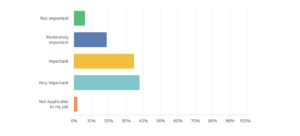Flexible working as human resources strategy (2023)
What does flexible working mean?
Flexible working covers any form of work which takes place outside traditional working hours and or locations. Below we discuss flexible working as human resources strategy benefits to the organization and its personnel.
Flexible working hours
Examples of flexible working hours can include –
- Start earlier – finish earlier
- Start later – finish later
- Compressed hours – longer hours each day over less days per week
- Split day – start early, take a gap in the middle of the day and then continue later in the afternoon
- Shorter lunch hour to enable earlier finish
- Accrued additional hours earlier in the week to facilitate an early finish on Friday
Flexible working locations can include –
- Home
- Co-working space
- Remote office
- Café
- Library
The idea of flexible working originated to help facilitate a better work-life balance for employees and very suddenly became the norm for most office-based companies during the pandemic. Many companies came to appreciate the benefits after lockdown ended and we started to return to the office.
What are the advantages of flexible working for employers?
When the topic of flexible working crops up, many people think that only the employee enjoys the benefits, but there are many advantages for employers too and the pros of flexible working include –
- Recruiting new talent who may not otherwise consider your firm
- Reducing company overheads – reduction in office space
- Give and take with staff – team members available over a longer working day – different shift patterns can mean longer working hours but with less staff in each shift
- Encourage/retain team members on maternity/paternity/long term sickness/with carer commitments, offering flexible hours and or working from home
- Retain staff who would otherwise leave if needing to relocate for personal reasons
- Less down time due to bad weather/train strikes etc
- Different flexible working strategies can be employed in different departments
- Enhances trust with staff
- Allows management to plan and schedule more effectively
- Reduced employee stress
- Increased job satisfaction
- Maintaining good relationships with staff
HR Considerations
- Need to trust staff – but everyone needs to remember that trust works both ways
- Still need to support those staff who prefer to be in the office – flexible/remote working doesn’t suit all
- Line and department managers need to be equipped and supported to manage remote teams
- Need to dispel the ‘them and us’ myth, a pattern of flexible working may suit one team but not another
- Does your current IT infrastructure and hardware support flexible working?
Pros of flexible working for employees
- Reduction in travel costs working from home/remotely
- Sharing childcare/carer commitments
- Potential reduction in childcare costs
- Reduction in unproductive travel time
- Don’t need to use annual leave for hospital appointments/car MOT/child illness from school etc
From a recent survey which asked – “How important would an element of flexibility be to you in your current position?” We received the following answers.

Source – Flexibility Matters Survey July 2022.
Implementing Flexible Working
Implementing flexible working as human resources strategy benefits to the organization and its personnel and can have a positive effect across all areas of your company and create many advantages of flexible working, although you will need to take into consideration
- Trust – on both sides from Managers and Staff
- Good Managers lead by example, but staff need to on occasions be flexible too
- Flexibility works both ways
- Them and Us
- Don’t allow a ‘them and us’ scenario between teams and individual team members who are more or less visible in the office or appear to be working more or less visibly
- Sense of Entitlement
- From a younger generation who expect more flexibility than older generations and especially since the pandemic – if your company doesn’t offer flexible working another will
- Flexible working takes on a different meaning from company to company – what works in one company may not work in your company
If you would like advice and guidance on implementing flexible working within your company, talk to us. There are many advantages of flexible working and we can work with you to implement these policies within your company, regardless of industry. We work with companies of all sizes and consult and offer guidance on implementing flexible working – which can look very different depending on the type and size of the firm – but we appreciate the benefits and it is why we believe so strongly in spreading the message.
Call Emma on 07810 541599 or email – [email protected].




